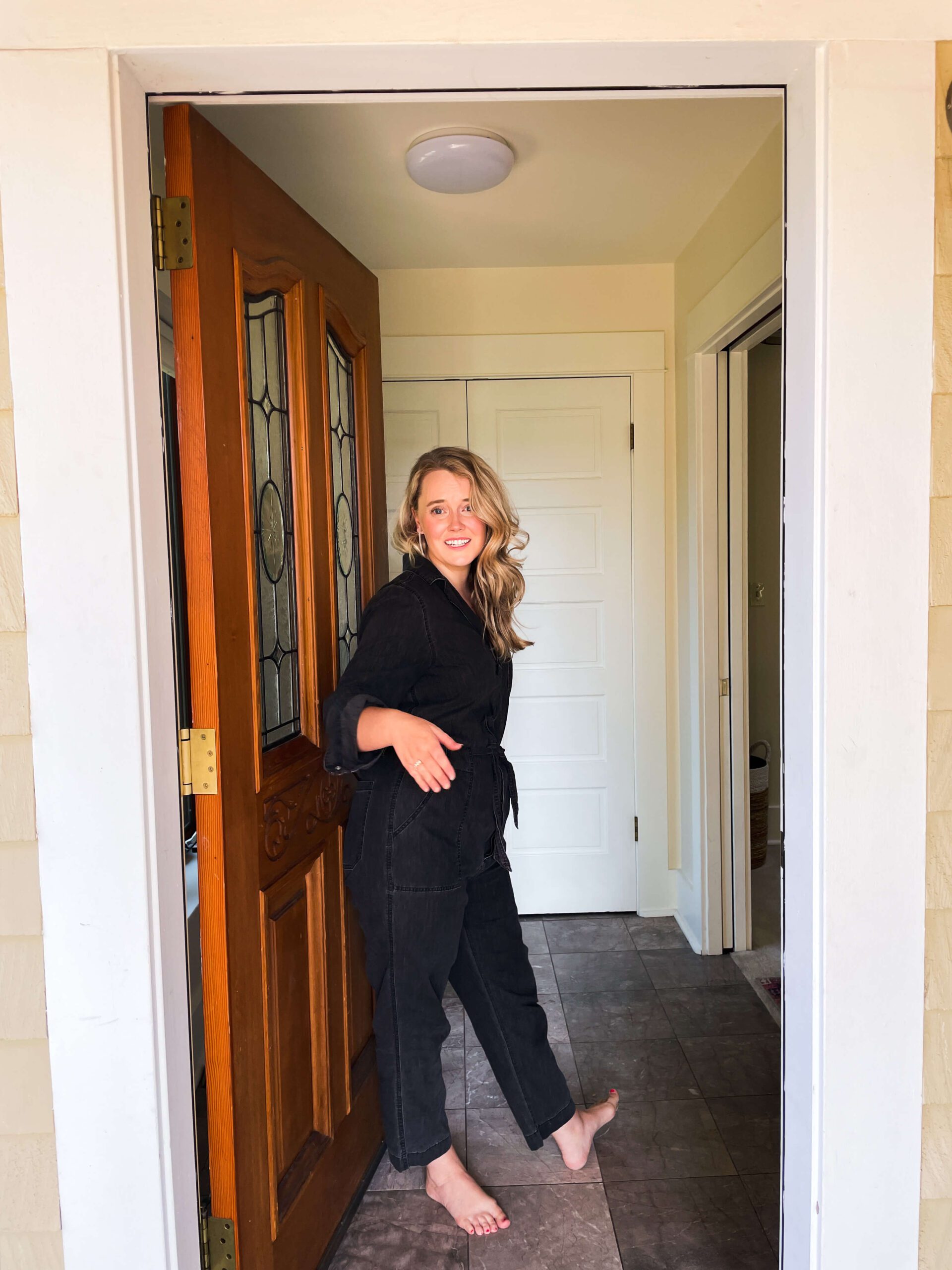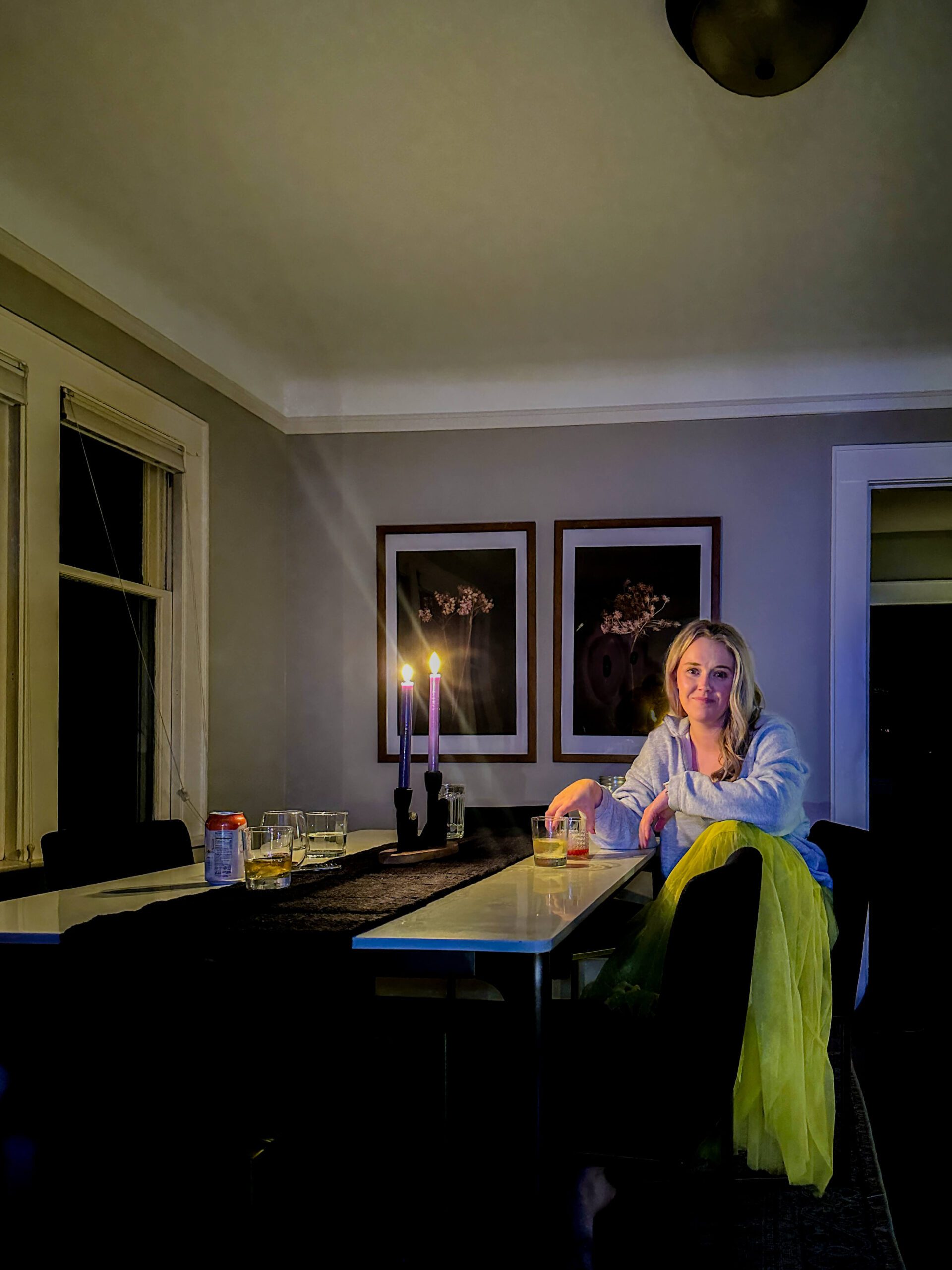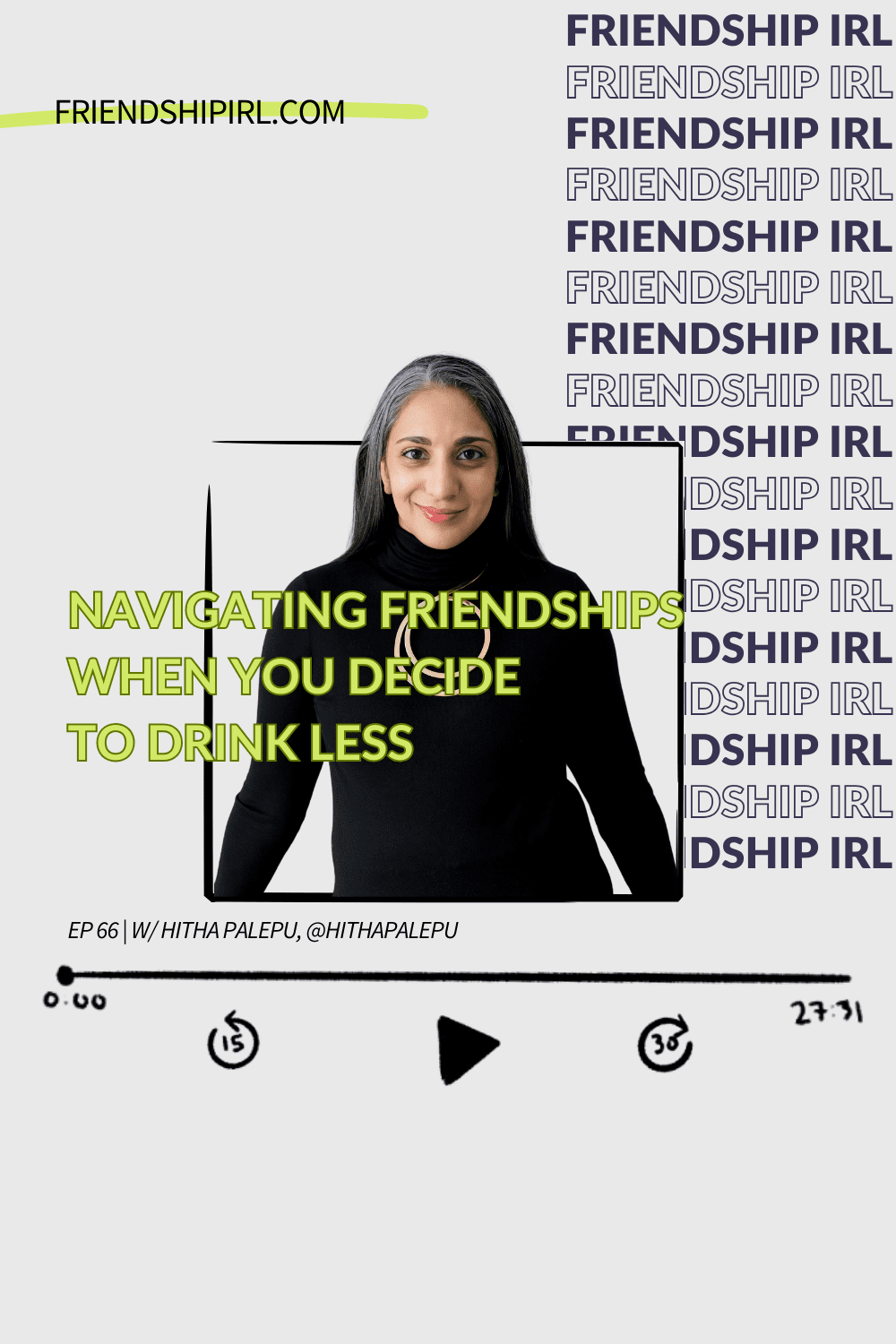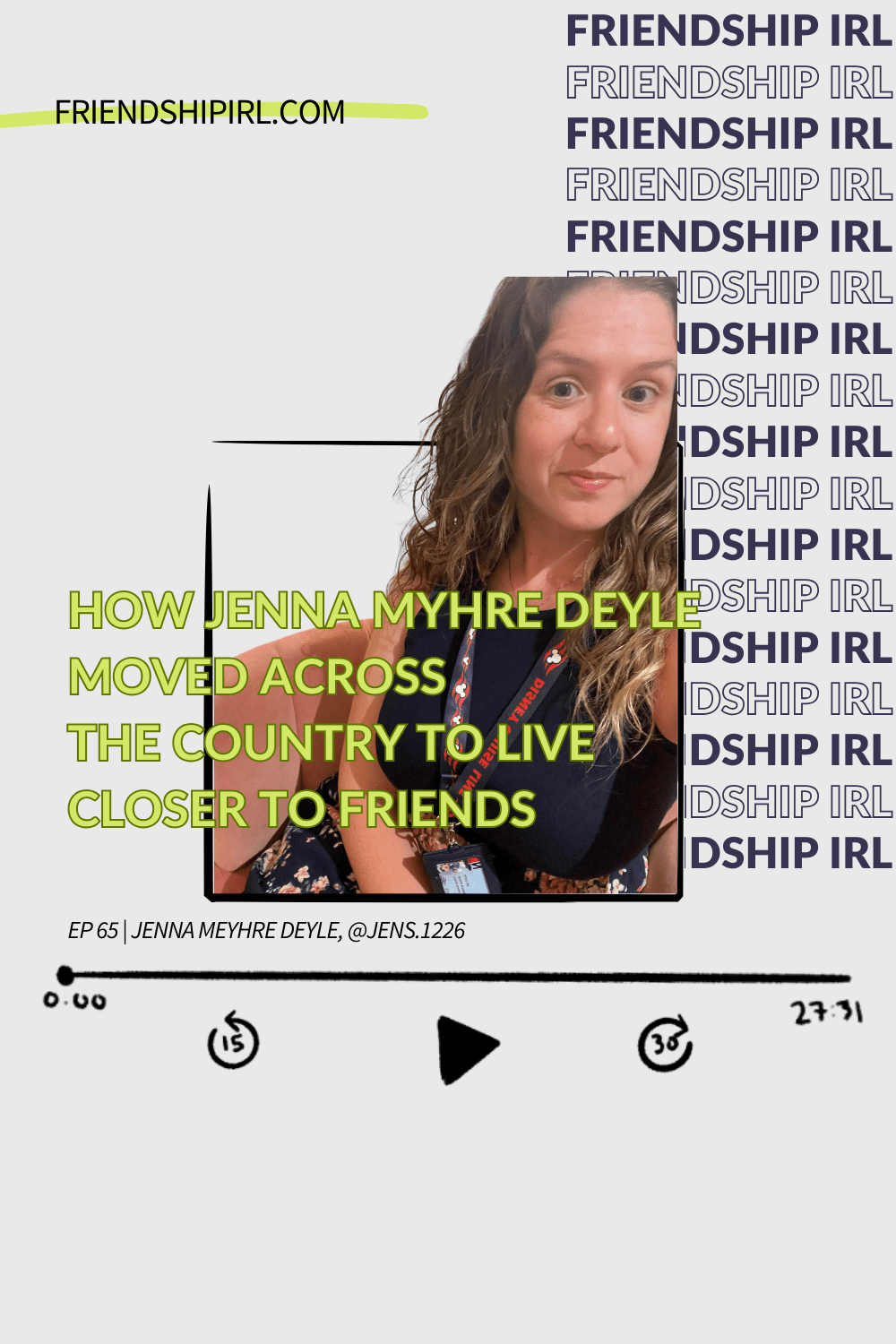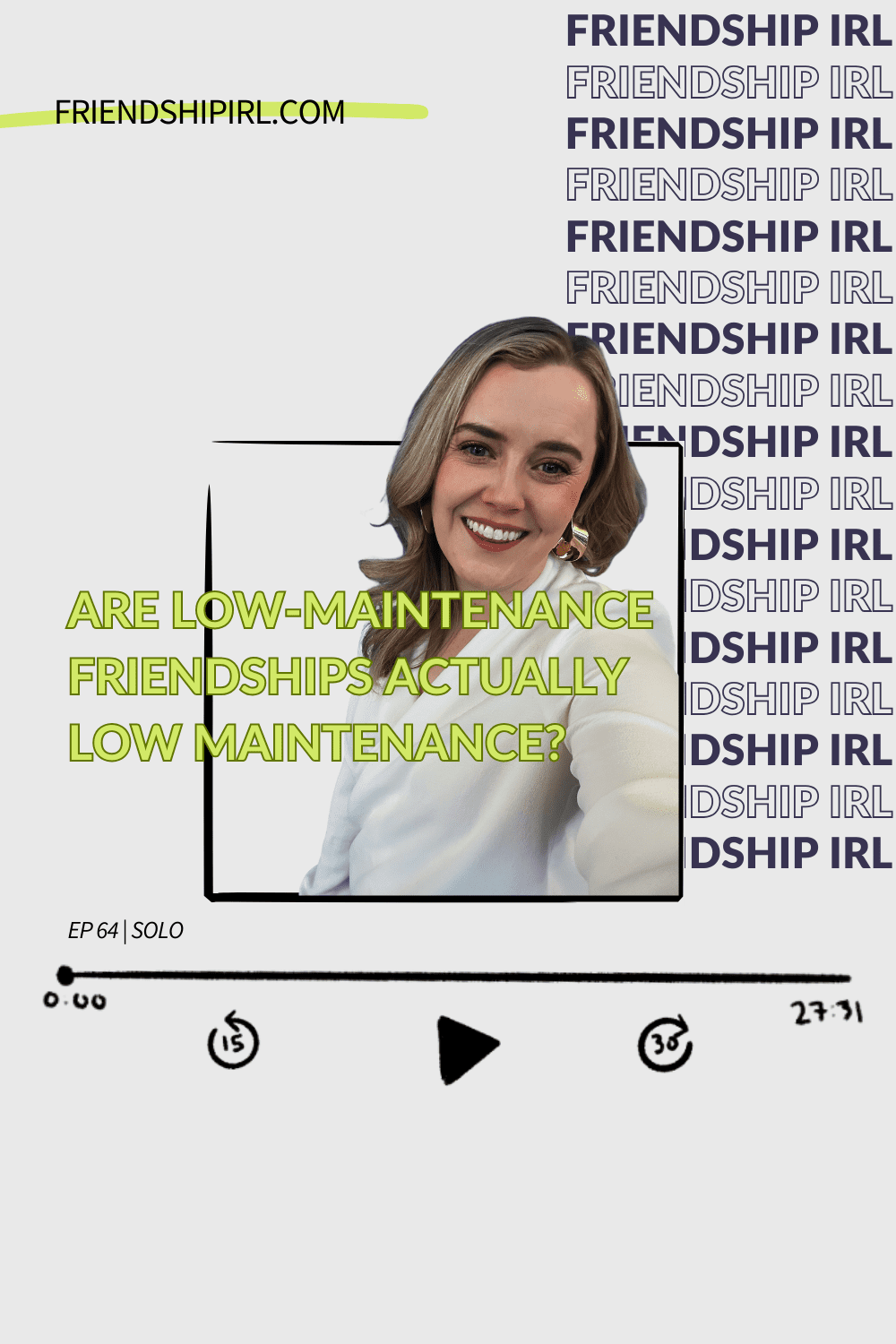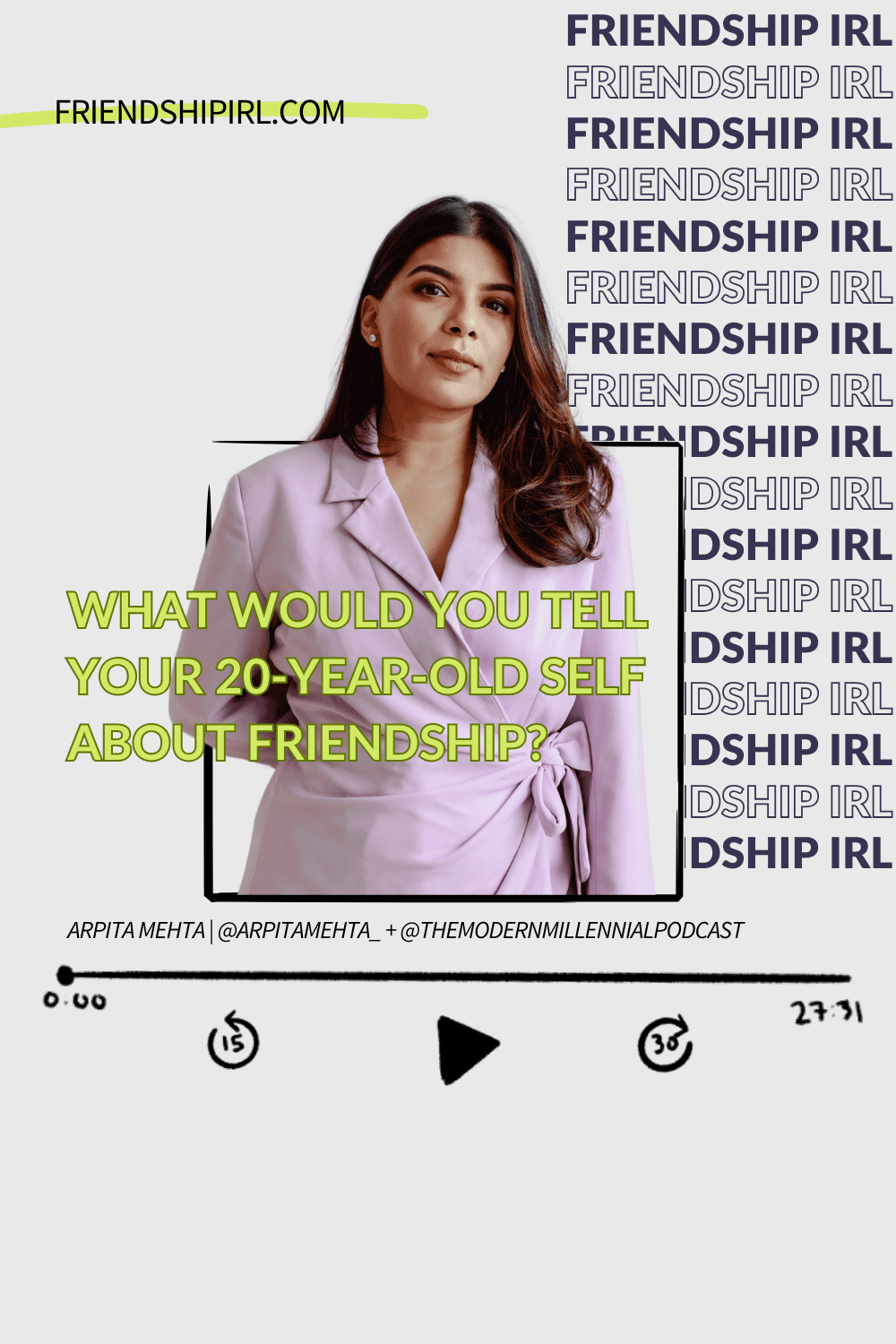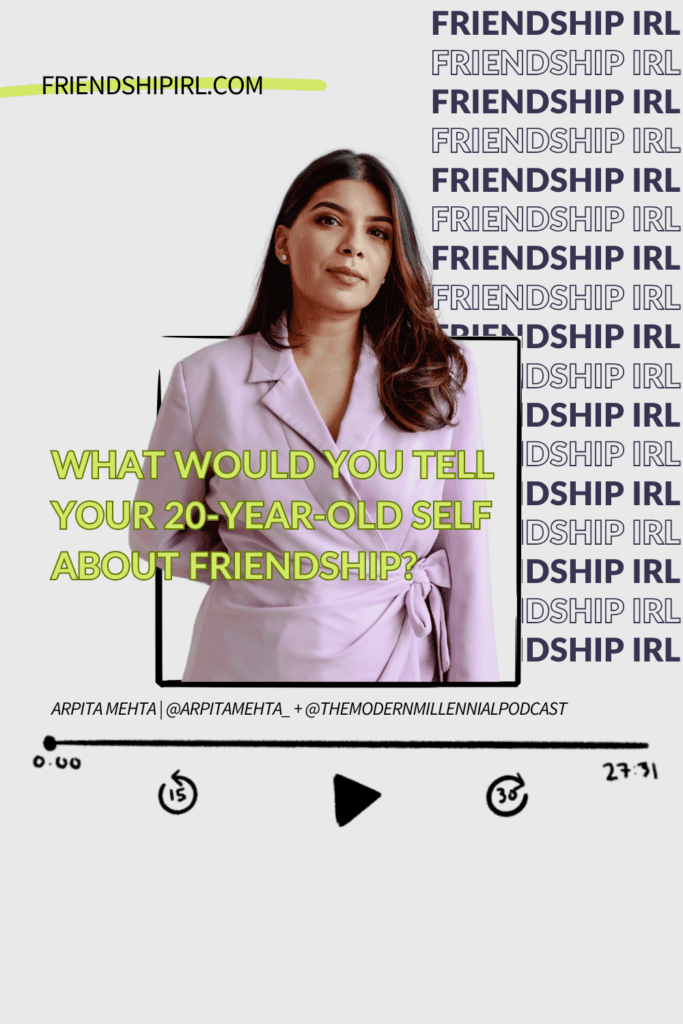
- About the Guest: Arpita Mehta
- Understanding Friendship
- Navigating Friendships
- Choosing Friends Wisely
- Takeaways from Alex & Arpita’s Wisdom
- Dive Deeper into the Episode
- Frequently Asked Questions
We all know that friendships evolve as we grow older, but as we’ve grown here is what i wish i knew about friendship in my 20s. Open and honest conversations about what friendship actually looks like are few and far between… until now. The Friendship IRL Podcast provides a valuable perspective about rewriting the narrative and normalizing the spectrum of friendship experiences.
In a recent episode, Alex sat down with fellow podcaster Arpita Mehta to unpack lessons they’ve learned about friendship between their 20s and now in their 30s.
About the Guest: Arpita Mehta
A brand strategist and marketer by trade, Arpita Mehta found herself wanting deeper conversations around topics like self-growth, relationships, and all aspects of our lifestyles. She began The Modern Millennial Podcast to create that space, and building an engaged community of over 38,000 South Asian millennial women with her Little Brown Diary Facebook group.
To stay in the know about Arpita and The Modern Millenial Podcast, sign up for the Modern Millenial Newsletter.
Understanding Friendship
As Alex often says – it’s time to rewrite the narrative around friendships and what they “should” look like. Both she and Arpita share how their understanding of friendship has expanded from unrealistic media portrayals and quotable platitudes:
“I think we put so little value in that and there needs to be more. And men’s friendships, guys, they do it so well, where it’s like, they’re just in a fantasy football league. And because of that shared experience, it’s like, they’re constantly talking to each other, they’re connected.”
Rather than intense heart-to-hearts, men tend to value consistency and shared interests or activities when getting together. Focusing less on vulnerability and more on the pleasure of each other’s company.
Women often set impossibly high expectations of being the perfect friend who is endlessly available to process at length. Dropping these assumptions opens up space for more friends.
“It’s important to find friends that have shared experiences. So let’s say you’re a digital business owner, to have a community there that supports you.”
Seek out connections aligned with different areas of your life instead of relying on one ride-or-die friend.
Alex and Arpita model a more expansive, compassionate way of looking at friendship – one that allows for change over time, varied levels of closeness, effort and ease, fun along with deep talks. One that requires rewriting internal narratives based on how friendship “should” operate.
As Alex often reiterates, there is no “one size fits all.” Make space for friendships to show up in abundance.
Navigating Friendships
We’re Never Taught Friendship Skills Growing Up
Alex points out a common refrain – people are frustrated trying to navigate adult friendship, yet it’s not a skillset we’re ever formally taught. Arpita agrees that there is so much unlearning and relearning to do when it comes to being a good friend.
“I think I’m just starting that journey right now. Like I’m not even anywhere close to where I would want to be. Because so much of what I thought a friend was and being a friend is was just from the media and the movies and the world we live in versus real life examples.”
Rather than beat yourself up for not “knowing how” to do this adult friendship thing, have compassion for a skill you’re having to develop through trial and error.
The Effort Required to Maintain Friendships
Arpita points out an all too familiar experience – when life gets more complicated, and you don’t put consistent effort into nurturing friendships, connections start falling through the cracks.
“Friends come so easily to you early on in your career, they’re handed to you in school and in extracurriculars or in college. And it’s the convenience of it. You don’t have to try and you have friends waiting for you in every corner. It’s when things get tough and become adult, you realize – and especially for me, after getting married, the pandemic, life-changing, really busy schedules – you realize that if you don’t put in the consistent effort, that’s when things fall through the cracks.”
No matter what stage of life, it takes regular effort to maintain friendships – whether that’s checking in more intentionally, scheduling dedicated catch-up sessions, or simply making space for spur-of-the-moment hangouts.
Being the Connector in a Friend Group
If you’re someone who often plays the role of Connector in your friend group, this one’s for you. As Alex shares from experience:
“If I invited everyone then I also had to do all the work and make sure everyone was happy and like, fill all the roles and just let everyone else be a guest… I think the older I’ve gotten, the more I’ve realized that being the connector or the initiator is just one of the roles. And hopefully, if the group is, I won’t say, healthy, if that’s the right word, if the group is filled with other people who care about maintaining the group, just because I’ve been the connector or the initiator doesn’t mean I have to do all the other work.”
While being the connector is a valuable skill, you don’t have to carry the full burden. Encourage others to initiate hangouts or check-ins too so you can focus on deepening some of those 1:1 bonds.
The Friend Group Balance
Shifting gears to navigating friend groups, Arpita observes an admirable quality in many male friendship circles:
“I very much admire my husband and his group of friends. They’ve known each other since they were in middle school for years and years…if this was a group of girls, the amount of hurt, the amount of emotion, the amount of chaos that would have ensued, but because guys deal with friendships so differently, they have been able to maintain a level of friendship that I think is so admirable and not everyone’s best friends in the group.”
Alex notes that a group relies on tending to those individual friend connections: “The group is great. But a group is just a bunch of interconnected individual friendships…you actually need to put more attention on those individual relationships in the group to varying levels of closeness.”
Evaluate if your own friend group has sufficient 1:1 time invested to sustain overall cohesion. Recognize that not everyone has to share the same level of closeness either.
Choosing Friends Wisely
With so much discussion around effort and intention in friendship, it begs the question—how do we “choose” friends? Are we simply doomed to stick it out with every person that enters our lives?
Alex and Arpita touch on the idea of boundaries and discernment:
“I realized that not everyone was looking for me to be their best friend. And I kind of learned it the other way where it was, like, you know, I was putting in a lot of effort. And it wasn’t being reciprocated.”
We don’t need to hold on for dear life or over-invest when the care isn’t mutual. And rather than take it personally, shift perspective – was this person meant to play a different role in your life than expected?
Rediscovering healthy boundaries allows us to direct energy toward reciprocal, fulfilling bonds instead.
Step back and evaluate who nourishes you and who drains you. Then, make choices that align with your growth.
Takeaways from Alex & Arpita’s Wisdom
There were so many lightbulb moments in Alex and Arpita’s conversation – around evolving friendships, balancing friend groups, handling hurt feelings, and more. A few final calls to action:
-
Define what being a good friend means to you right now. Don’t limit yourself to what pop culture or past expectations say.
Make an effort to fold friends into everyday activities when possible (errands, shared hobbies, etc.)
Invest time in individual friendships within larger groups to strengthen bonds
Have self-compassion that we aren’t taught “how to friendship” – give yourself grace!
Dive Deeper into the Episode
Dive deeper into Alex and Arpita’s thoughts by listening to Episode 63 of Friendship IRL Podcast in full.
Want to Keep the Conversation Going?
Reach out to Alex via Instagram, check out Arpita’s Modern Millennial podcast, and consider joining her Little Brown Diary community.
Frequently Asked Questions
What are the key components of a strong friendship in your 20s?
Embrace the fact that your 20s are a time to cherish the friendships you have. Take advantage of your time to create lasting memories with your friends. It’s important to build strong roots through shared experiences and create a wide network of friendships that support you in all aspects of your life. This diverse group of friends will be there for you in the long run, providing different perspectives and support when needed.
How can I navigate changing friendships as I grow older?
Have compassion that friendships naturally evolve rather than expecting things to stay the same – check in with friends about where they’re at while assessing your own needs and boundaries.
Why is setting personal goals important for maintaining healthy friendships?
We talk all about Friendship goals in Episode 60 of the Friendship IRL Podcast. Check it out here.
What role does embracing individuality play in forming lasting friendships during this stage of life?
Fully embracing your multifaceted self attracts friends who resonate with different aspects rather than expecting one or two people to be your everything.

